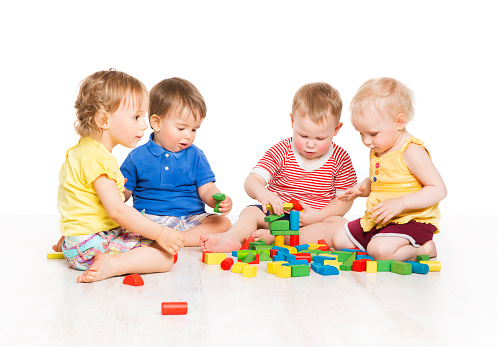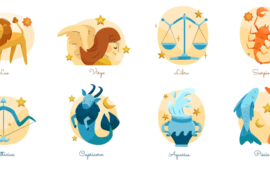Children learn through play. This tenet is not new. However, as parents, we often worry about what to buy children so that they have fun and learn too. It can be challenging to know whether or not a toy is providing fun, education, or both. In most cases, all toys can provide educational opportunities if used in that way. However, below are ten things that you can purchase for your children that will certainly improve these skills. We will provide a link to a toy that fits the description, the commentary on the toy, and a few areas where the toy meets the educational component. Keep in mind that you do not need to structure educational play. Often children learn through experimentation. We will also include the suggested age group for each toy.
Puzzles
Puzzles are fantastic resources for children to develop many skills. For example, they learn problem-solving skills because they have to learn to match things, turn the pieces, and align the edges and corners. In addition, they help children learn to do things independently. Puzzles are often solitary activities. Motor skills can also be enhanced using puzzles.
- Toddler Puzzles these puzzles generally have few pieces and allow children to make matches. They are usually brightly colored and come in themes like animals, shapes, colors, or vehicles. The large pieces and knobs help children’s grasp and motor function.
- Preschool Puzzles These puzzles are often similar to the toddler puzzles, but the knob on top is now missing. They still help with motor function, but now they have to hold and transport the pieces with a pincer grasp. Similar matching and coordination functions are present.
- Early Elementary Puzzles At this stage, children’s puzzles begin to look more like adult puzzles, but they generally have fewer, larger pieces. Fine motor skills and gross motor skills are at play here, as are more problem-solving skills. These skills have been scaffolded since the introduction of toddler puzzles.
Building Blocks

Interlocking bricks and blocks are popular toys for children. The Lego brand has begun to market sets for toddlers and themed sets for children and adults. Other brands have also hit the market and begun to cater to multiple age groups. Not only do they build motor skills, but they also help with problem-solving skills.
- Wooden Blocks Children have loved wooden blocks since the beginning of time; it seems. The blocks with letters, shapes, and names you may have played with before are great for child development. Not only are they nearly indestructible, but they also have colors, shapes, letters, numbers, and visuals that you can use to interact with babies and toddlers.
- Large Interlocking Blocks—Mega blocks and Duplos are the most popular brands of these interlocking blocks. They help children with fine and gross motor, social, and academic skills. Color sorting, identification, size and shape sorting, and other activities can help children develop the skills necessary for math as they get older.
- Small Interlocking Bricks—Legos are the most popular brand of interlocking bricks, but other brands have emerged. These bricks help children to develop their fine motor skills, as the above do, and they can help children enhance their creativity. They can purchase sets with instructions, but children can also use the bricks to build their own designs.
Pretend Play

Pretend play is excellent for children. They learn social skills, life skills, and academic skills as well. Have you ever wondered why there are so many toys for children that mimic adult items? These toys help children begin to develop interests in careers, hobbies, and lifestyles.
Household Toys
Household toys are common for children of all ages. Kitchen items, toolsets, and cleaning supplies may all be found in toy departments worldwide. They can also help children become ready for chores.
- Kitchen Toys—Pots, pans, food, refrigerators, and stoves foster children’s sense of creativity and develop fine and gross motor skills. Stirring, shaking, and mixing foods provide valuable motor skills that will help children develop muscle reactions they will use throughout their lives. They can also help children hone their social skills through tea parties that teach table manners and social norms.
- Cleaning Toys—Brooms, mops, wipes, and dusters are popular toys among young children. They often enjoy playing with these toys and mimicking their parents. Like kitchen toys, these toys help children learn to learn valuable life skills. They can use vacuums and brooms to improve their gross motor skills and life skills. Learning how to use these items will benefit them as they get older.
- Tool Sets—Kids love to pretend to do things moms and dads do. Building, repairing, and redesigning fix-it projects fascinate many children. Girls and boys can pretend to build houses, dog houses, or furniture with these sets. They can develop their creativity and artistic skills as well. Future interior designers, architects, and construction workers often find great fun in these sets.
Careers
Children often enjoy acting like the people they dream of becoming. Career sets can help children familiarize themselves with the tools needed to do each job and learn social skills in the process.
- Doctors—Medical kits have been popular toys since the medical profession began. Children see doctors frequently in their first few years of life for vaccinations, check-ups, and typical illnesses. They learn what those doctors do by watching them. When they use these kits, they can pretend to help their friends and family members feel better.
- Scientists—Another popular career for children to mimic is scientists. They have exciting jobs, and children often pretend to create new concoctions and solutions. You can even pair this dress-up kit with some fun science experiments.
- Chefs—A chef’s hat and apron can bring out the chef in your child. Paired with the kitchen sets from above, and you might have yourself the next Gordon Ramsay. You can foster learning through food and nutrition information and letting your child help in your own kitchen.
- First Responders—Firefighters, EMTs, and Police Officers are also popular toys for children. They help children to understand the people in their communities charged with helping others. They can act out their fears and hopes with these costumes as well.
STEM Toys

Science, technology, engineering, and math are booming paths these days. More companies are encouraging children to explore these paths. Beginning children young can help them grasp scientific concepts even earlier. They can explore their environments and learn more about how the world works. The toolsets from above can help them understand how construction depends on load-bearing walls even without those words. Lego also offers children First Lego League and other STEM activities to inspire tomorrow’s engineers. However, these are not the only toys that can help children with STEM activities.
- Microscopes—Lab exploration can help children learn from their environment. They can view bugs, water, dirt, and other materials from their world under the lenses. Not only can they enjoy pretending to be the scientist, but they can also learn from it in the process.
- Robotics—In addition to scientific discoveries, children can learn to code and build robots. While the youngest children may only be able to manipulate the robots, increasing their time with these toys can help them understand the electronics world from a new perspective.
- Grow Your Own Garden—Children can learn about the soil and watering required to grow food from growing their own garden. They can also learn valuable nutritional information. Parents can help their children learn to grow herb gardens or terrariums before beginning.
Musical Toys
Musical toys not only foster creativity, but they can also help children to calm down and feel less anxiety. If your child experiences challenges with these things, music therapy is often a great idea. Playing with musical toys can help children explore their creative sides while providing an outlet for these sensitivities. Fine and gross motor skills are also enhanced through playing with keyboards, drums, xylophones, and horns.
Bottom Line

Children often find enjoyment in many types of toys and activities. You can foster development with a variety of toys. There is no right or wrong way to help your child develop these skills. You might combine several of these toys in one play session. The best thing you can do for your child is to encourage them to explore their feelings, thoughts, skills, and environment.








